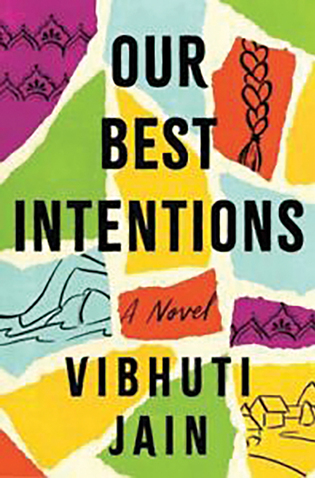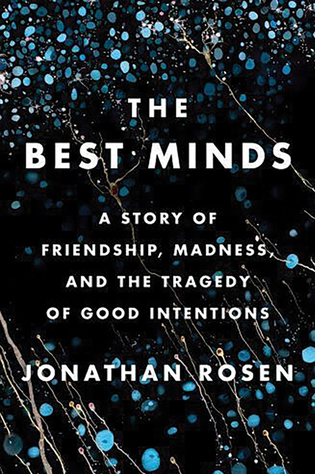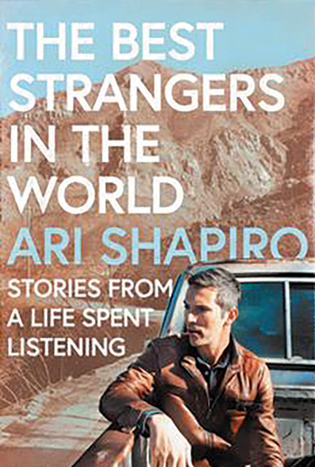
Our Best Intentions: A Novel
Vibhuti Jain ’04
William Morrow, $30
Reviewed by Sylvia Brownrigg ’86
Babur Singh is a Punjabi immigrant who runs a transport company called Move with Bobby and has a side shift as an Uber driver. When he collects two white out-of-towners in protest gear, he finds himself heading to the high school where his daughter Angie is a student. The protesters explain their cause—“Justice for Chiara,” a Black student who was found drowned days after a violent incident at the school. Bobby wants to interrupt with what he knows of the case, but stops himself. “If his nearly two decades in the United States have taught him anything, it is to sprint away from any even tepidly heated conversation linked . . . to race; it is a tinderbox.”
Vibhuti Jain shows no such reticence. This taut, gripping story interweaves a mystery about a racially tinged crime with the private grief of one Indian American family: Babur’s wife Purnima left when Angie was six, and since then Babur has been raising Angie alone in a well-to-do suburb. (Her original name, Anjali, was changed so she might blend in better.) Angie’s bad luck began while Chiara was still alive. When Angie returns from a swim workout she discovers Henry, a popular white jock, lying stabbed on the football field. While Henry’s agitated buddy Chris shouts incoherently about Chiara, who has run away, Angie stays calm and dials 911.
Precisely what played out among the two white boys and Black girl remains unclear until the novel’s end; but Jain sharply traces the community’s swiftly drawn battle lines, between Henry’s wealthy family—exerting power through their intrusive lawyer—and the (literally) unconnected Chiara, who has her own painful family circumstances.
Bystander Angie is the novel’s sensitive, conflicted heroine, who in not choosing either side ends up pleasing no one, adding to her own isolation. Jain vividly captures the visceral feelings of stress, panic, and concealed trauma, and alongside the believable depiction of high school life is the poignant story of a father and daughter learning how to communicate with each other about loss and the strangeness of American life. Angie’s strength and consolation has always been in the swimming pool, where her strong, confident strokes allow her freedom. “At least in water, things make sense.”
Sylvia Brownrigg ’86 is the author of seven works of fiction and a forthcoming memoir in stories, The Whole Staggering Mystery.
__________________________________________________________________

The Best Minds: A Story of Friendship, Madness, and the Tragedy of Good Intentions
Jonathan Rosen ’85
Penguin Press, $32
Reviewed by Sue Halpern ’77
After eight months in a psychiatric hospital, following a psychotic break and a sojourn at a halfway house for the mentally ill, Michael Laudor ’84 (and later ’92JD) was given a choice: work as a cashier at Macy’s or enter Yale Law School. Laudor, who had graduated summa cum laude from Yale College, chose the law school, where he had applied before he was hospitalized. By all accounts, he was brilliant, with a facile, persistent, original mind. He was also schizophrenic.
In 1998, in the midst of a psychotic episode, he killed his girlfriend, Carrie Costello ’84, stabbing her repeatedly with a kitchen knife and nearly severing her head. He was thirty-five. She was thirty-seven, and pregnant.
The writer Jonathan Rosen ’85 had been childhood friends with Laudor, and though they had grown apart, Rosen’s elegiac book, The Best Minds, takes the reader back in time, before Laudor’s crime came to define him. It situates Laudor in a milieu that nurtured his boundless talents but, by a strange twist of fate, also put him in a group of well-meaning neighbors, psychiatrists, and psychologists who happened to be at the forefront of the movement to deinstitutionalize the mentally ill.
As Rosen tells it, their long-standing affection for Laudor, and their belief that he could heal himself, blinded them to his increasingly disordered thinking. Rosen is a compassionate writer. He refuses to cast blame—not at Laudor, not at Laudor’s therapist-friends, and not at Yale Law School, which did so much to accommodate Laudor’s disabilities that he considered it his “day hospital.” After a New York Times profile catapulted Laudor into the world of movie deals and six-figure book contracts, it looked like he would be the schizophrenic who beat the odds. It also looked like he was going to best his old pal and rival to become the well-known writer they had both aspired to be. Instead, Rosen has written a shattering narrative, and Laudor is now a permanent resident of the Mid-Hudson Forensic Psychiatric Center.
Sue Halpern ’77 is a staff writer at the New Yorker and scholar-in-residence at Middlebury College.
__________________________________________________________________

The Best Strangers in the World: Stories from a Life Spent Listening
Ari Shapiro ’00
HarperOne, $27.99
Reviewed by Richard Harris
Predictions that go public can be risky. Exhibit A, from this magazine in 2009: “I don’t think I could ever write a memoir of my life, and I don’t think anyone would ever want to read one. It would simply be too boring.” Fourteen years later, Ari Shapiro ’00 either forgot his prediction or his life got appreciably more interesting. In fact, his book—The Best Strangers in the World—spent its first week as eighth on the New York Times Best Sellers list. In the memoir, the cohost of NPR’s All Things Considered considered all facets of a life that has created a rich mosaic.
Shapiro credits the birds along the Oregon hiking trails for developing his close listening skills. His journey has taken him around the world: working as a radio journalist, singing with the group Pink Martini at the Hollywood Bowl, performing in Olympia Hall in Paris and on a cabaret stage with actor Alan Cumming, and much more.
By the time Shapiro graduated Yale and became a reporter, he felt he had a superpower: to move between worlds in journalism, thanks to his upbringing in Fargo, North Dakota. He and his brother were the only Jewish kids in their elementary school, and they visited class-rooms with menorah and dreidel, explaining Hanukkah. Shapiro also had a unique experience in his Portland, Oregon, high school, since he was perhaps the school’s first openly gay teenager. As a journalist, he found that “I could perform those acts of translation and be a liaison to groups to which I had no personal connection beyond my journalistic interest.”*
What won me over was his self-deprecating chapter You Can’t See Schvitz on the Radio—about his ability to drip endless amounts of flop sweat. “I don’t get dewy. I don’t perspire. I’m not talking about ‘I could use a handkerchief.’ I’m talking about ‘I could use a towel. And a mop.’”
Richard Harris, a consultant to the nonprofit iCivics, is former senior producer at ABC News Nightline.
__________________________________________________________________
* In our print edition and in an earlier version of this online article, the end of this quotation was inadvertently omitted.
 loading
loading

